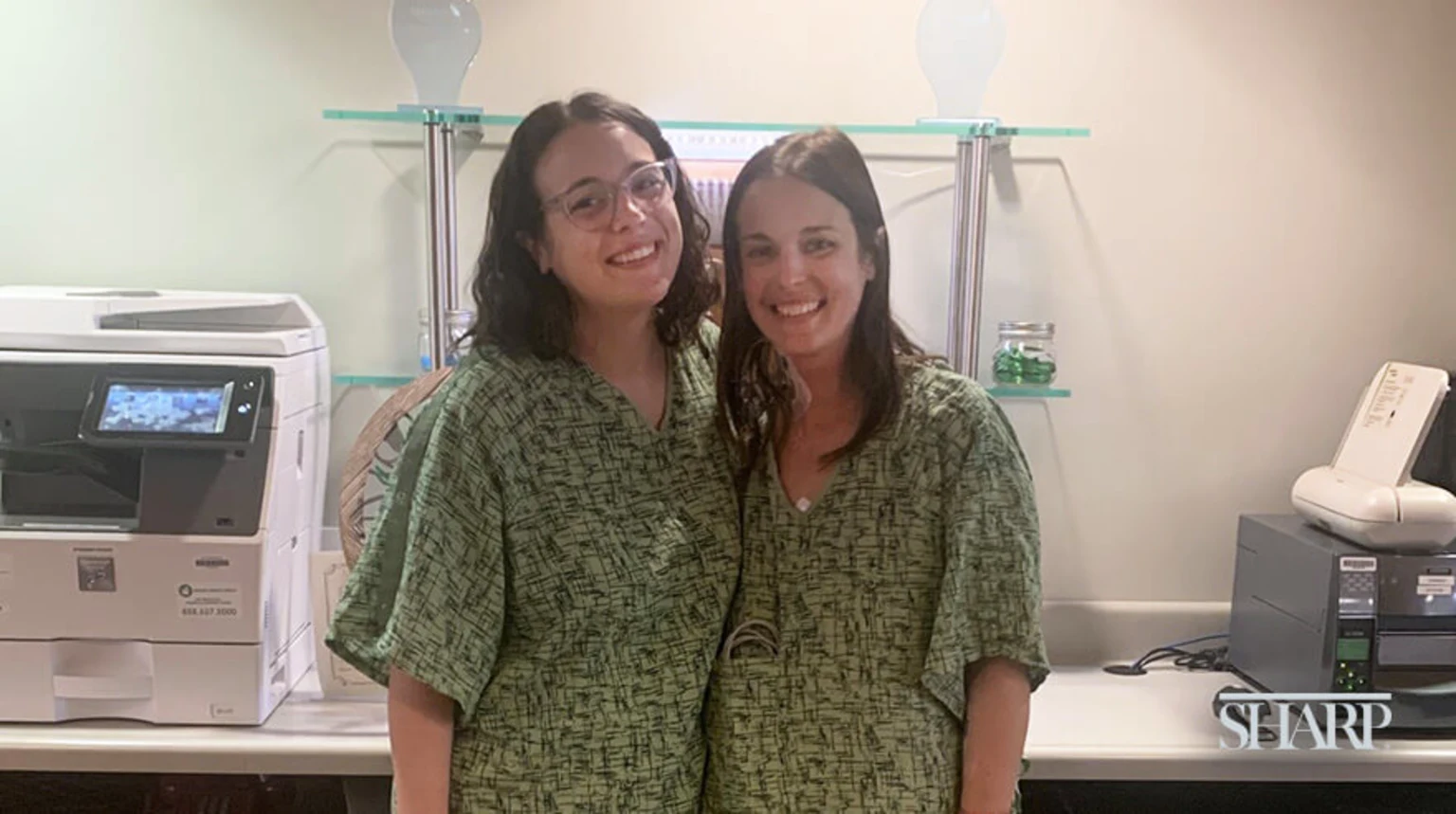
California bans ultra-processed foods in school meals
High in calories and low in nutritional value, examples of ultra-processed foods include chips and other packaged snack foods, sugar cereals and packaged soups.
It's not common to hear that someone's sibling changed their life. But for Holland Ramirez, she says it with confidence because in 2020, Holland's younger sister, Riley Blum, donated her kidney to Holland.
At age 15, Holland was diagnosed with lupus, an inflammatory autoimmune disease that can harm the kidneys over time. She felt fine with medication. But 9 years ago, during a routine visit with Dr. Elizabeth Lozada-Pastorio, a nephrologist (kidney doctor) affiliated with Sharp Community Medical Group and Sharp Chula Vista Medical Center, Holland learned her kidney functioning was slowly decreasing.
"If my nephrologist didn't tell me then, I would've had no idea," says Holland. "My daily life felt normal. To help with my kidneys, my nephrologist told me to watch out for potassium levels in my food."
Several years later, however, while planning for her wedding and working as a teacher, Holland felt particularly exhausted by the end of the school year.
"Also, I started gaining weight, had nausea, and my face was puffy," she says.
Holland's blood work revealed something scary: her kidney function was down to 10%. She was told to immediately go to the emergency room and ended up staying at the hospital for a week, where she received two rounds of dialysis to remove toxins from her blood, and was given steroids to strengthen her kidneys.
After she left the hospital, Holland had to adhere to a strict diet — eating foods low in sodium, protein, potassium and phosphorus in order to slow the progression of her kidney failure. While on the diet, Holland felt her health was improving, but a year later she again discovered her kidneys were not functioning at sufficient capacity.
Holland's doctors said it was time to search for a kidney donor - preferably a living donor because these transplants are associated with better long-term survival rates and other benefits. In the meantime, she started dialysis. Holland turned to her family for support and her two sisters instantly offered to be tested. Riley did not hesitate to see if she would be an eligible donor.
"When Holland asked me for help, I knew in my gut this was something that I wanted to do. Not out of obligation or pressure, I just wanted Holland to have a healthier life," says Riley, who is 8 years younger than her sister.
Riley started the process to determine whether she was a good donor match.
Tammy Wright, Riley's transplant coordinator, started the assessment right away. "My role in the donation process is to guide our donors through the evaluation process," says Wright. "Each living donor has an extensive medical evaluation to help determine if living donation is the best option for them. If at any time during the evaluation the test results show a risk to the donor or the kidney recipient, the evaluation process will stop."
In February 2020, 2 weeks after learning she was a strong match, Riley and her sister underwent the transplant at Sharp Memorial Hospital.

Riley Blum (left) and her sister Holland Ramirez at Sharp Memorial Hospital after their kidney transplant.
"I felt such love from the nursing team that helped me during surgery," says Riley. "I am so thankful I had Tammy every step of the way. It was an anxious time in my life, worrying about Holland, worrying about myself, that it was such a relief to feel comfort and support from the Sharp staff."
Holland echoes Riley's sentiment about Sharp Memorial, which performs more than 30 living donor transplants every year.
"Everyone was amazing, from the staff who provided transportation to the nurses and doctors. I can't say enough nice things about Sharp employees. I am a huge fan," says Holland.
Riley's surgeon, Dr. Jeffrey Halldorson, who is affiliated with Sharp Memorial and Sharp Community Medical Group, is a fan of the sisters. "It is truly beautiful to see one sister saving another through living donor transplantation. It never gets old and it is an honor for me to be a part of the transplant team that helps to make it happen."
Holland recovered quickly after her surgery, and the kidney she received from Riley worked instantly.
"My life became so much easier. I no longer worry about how I'll feel the next day," says Holland.
Riley says she was pleased to help her sister.
"Giving my sister my kidney is the best thing I've done. The best part is how much closer I feel with Holland and my whole family. It made us so much stronger," she says.
Holland is grateful for Riley's gift — calling it a blessing — and Riley encourages people to become a donor.
"If you have the opportunity to help someone you care about, answer the call," says Riley.
Learn how you can become a living kidney donor.
The Sharp Health News Team are content authors who write and produce stories about Sharp HealthCare and its hospitals, clinics, medical groups and health plan.

Our weekly email brings you the latest health tips, recipes and stories.